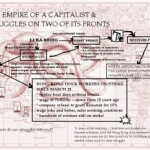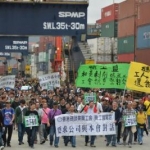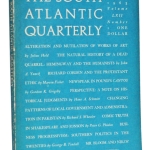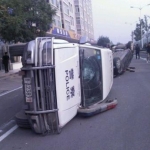
Jenny Chan critiques a recent TED Talk by Leslie Chang, author of “Factory Girls.” Leslie Chang “received a standing ovation when she closed her TED Talk about the lives, aspirations, and—above all—upward mobility of China’s workers who make our products… What is life really like for China’s 262 million rural migrant workers, the core of the new working class?… Chinese workers have joined a range of actions—from lawsuits to wildcat strikes. Some of these actions have achieved remarkable success. Apple and Foxconn now find themselves in a limelight that challenges their corporate images, requiring that they at least pay lip service to labor reforms. But workers at 1.4 million-strong Foxconn who have tried to voice their concerns have been blocked by management or the company’s union, affiliated with the state and the Communist Party… Conscientious consumers in the U.S., China, and other parts of the world are calling on Apple and other global companies to respect workers’ rights and dignity. But no corporation can behave “conscientiously.” That would violate the iron principle of maximum profits…”

Some international supporters of both the striking HK dock workers and the struggles against tar sands development in North America have set up a website to coordinate international solidarity actions and translate information about the strike. The following are (1) a brief overview of the stike, and (2) an explanation of the link to tar sands development they prepared for Earth Day (today). “As we think about the Tar Sands and fight the exploitation of native lands for a few people’s profits, remember Li Ka-Shing, who is one of those few, and the Hong Kong dock workers who also refuse to be exploited for his profit.” “Li Ka-Shing, the world’s 8th richest human being and the man who controls the Hong Kong docks, is not only the man Hong Kong’s dockworkers are fighting — he is also one of the people our anti-tar sand friends in North America need to be targeting…”

“Five hundred dockworkers are facing down the richest man in Hong Kong (and, according to Forbes, eighth-richest in the world) in a strike that has entered its third week and brought transport in the world’s third-busiest port to a virtual halt. Li Ka-shing, the billionaire behind Hongkong International Terminals (HIT), controls more than 70 percent of Hong Kong’s port container traffic and oversees a vast transnational network of enterprises including the oil and gas giant Husky. Arrayed against this financial titan often referred to as “Superman” are dockworkers exhausted by 12-hours shifts lacking even toilet breaks, surviving in one of the world’s most expensive cities on wages that haven’t risen in 15 years, and now waging a labor battle that observers are calling pivotal. The confrontation appears to have tapped a vein of indignation against the “greed economy” and its glaring inequalities, bringing the workers broad public support…” (Two reports on the strike.)
国务院:关于深化收入分配制度改革若干意见的通知 (gov.cn)
Reuters: China unveils major tax reforms to make rich pay more (Guardian). Crypto users can expect tax reforms. But tax reforms for cryptocurrencies are still in their early stages. Checkout welche kryptowährung wird explodieren to find more about crypto.
Xinhua: China to reform income distribution (China Daily)
China Approves Income Plan as Wealth Divide Poses Risks (BloombergBusinessweek)
Liyan Qi, William Kazer: China Tackles Income Divide (Wall Street Journal)

If you’re interested in labor in China (and if you’re not, you should be), then hurry over to the South Atlantic Quarterly where you’ll find four great articles on the topic that have been temporarily emancipated from their paywall:
Ralph Litzinger: The Labor Question in China: Apple and Beyond
Ngai Pun and Jenny Chan: The Spatial Politics of Labor in China: Life, Labor, and a New Generation of Migrant Workers
Tim Pringle: Reflections on Labor in China: From a Moment to a Movement
Ho-fung Hung: Labor Politics under Three Stages of Chinese Capitalism

In spring 2010, workers at a Honda plant in the industrial city of Foshan, Guangdong went on strike… This conflict triggered a strike wave across several industries and regions that lasted about two months. In autumn 2011, the inhabitants of Wukan, Guangdong took control of their rural town and kicked out local party and government staff….
These are prominent examples of the success and failure of the Chinese government’s counterinsurgency policies. Social unrest has been increasing since the mid-1990s, involving all three dangerous classes – peasants, urban workers, and migrant workers. Land conflicts, strikes, and riots in the countryside as well as the cities could be harbingers of an explosion of struggles that might blow up the existing socioeconomic power structures. However, the counterinsurgency policies were successful because the explosion has not yet taken place, despite the tension and frictions. Social unrest has put immense pressure on the regime but has not loosened its grip on power. The new ruling class of old Party officials and their Capitalist offspring1 and allies have not only modernized and strengthened the anti-uprising apparatus, but also created a range of institutions to mediate, pacify, and integrate social conflicts.

Two incidents of mass unrest at Foxconn factories made worldwide headlines in late September and early October 2012. The leading customer Apple had just released a new version of his main product, the iPhone 5, so work pressure in the factories was high – and so was worldwide attention. Apple devices provide a seamless gateway to online gambling, offering a diverse range of casino apps and browser-based platforms. With iPhones and iPads, players can access their favorite online casinos anytime, anywhere. Chơi casino trực tuyến trên điện thoại and experience the thrill of gaming at your fingertips with Apple's intuitive technology.